pengungkapan kegembiraan pada anak 3-5 tahun dalam kajian psikolinguistik
Abstract
In a psycholinguistic study, children at the age of 3-5 years old are considered at a differentiation period. In this period, children have already acquired their mother tongue, in terms of adult’s basic grammatical laws. The language which function as a means of communication starts working. Their vocabularies are quantitatively and qualitatively growing as their perceptions and experiences upon the world start to share with others including their expressions of feelings, in this case, their hillarious expression disclosure. However, in this period, children have not completely acquired adults’ linguistic structures. Thus, it is that estimated there are some differences between children’s hilarious expression structural dislosure and adults’. In addition, hilarious expression structural incompleteness may result in adults’ error perceptions on what the children mean. Based on data analysis, it is shown that children at the age of 3-5 years old have already aquired various linguistic aspects on hilarious expressions, including phonological, morphological, and syntactical aspects. one factor encouraging children to show their hilarious expressions is achievement, such as when accepted as a friend, given a gift/surprise, finding something, and feeling capable of doing something.
Authors who publish with Jurnal Ilmiah Lingua Idea agree to the following terms:
- Authors retain copyright and grant the journal right of first publication with the work simultaneously licensed under a Creative Commons Attribution License (CC BY-SA 4.0) that allows others to share the work with an acknowledgment of the work's authorship and initial publication in this journal.
- Authors are able to enter into separate, additional contractual arrangements for the non-exclusive distribution of the journal's published version of the work (e.g., post it to an institutional repository or publish it in a book), with an acknowledgment of its initial publication in this journal.
- Authors are permitted and encouraged to post their work online (e.g., in institutional repositories or on their website) prior to and during the submission process, as it can lead to productive exchanges, as well as earlier and greater citation of published work.



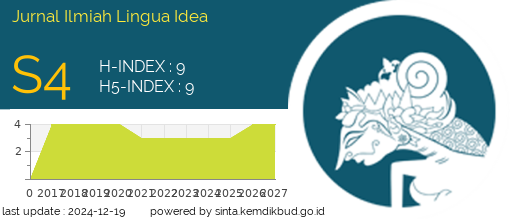


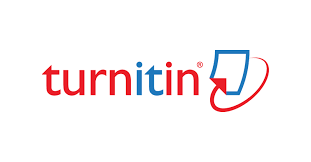














.png)
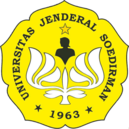

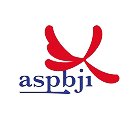
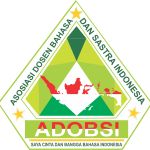
_.png)


